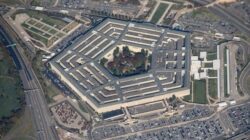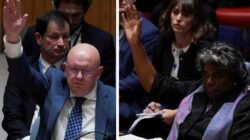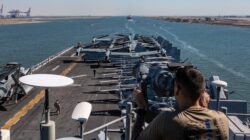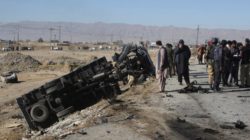DUBAI: The Middle East’s regional politics are in constant motion, as seen by China’s negotiation of a peace pact between longstanding adversaries Saudi Arabia and Iran in March of this year. Is the US still a significant partner for the Gulf nation, with this pact giving China peacemaker status and China and India topping the list of countries receiving Saudi oil?
According to Fahad Nazer, chief spokesman for the Saudi Embassy in Washington, despite suspicion, the two countries’ ties are stronger than ever.
“This is a relationship that has not only endured, but has really continued to broaden and deepen over the years,” Nazer told Katie Jensen, host of the Arab News discussion show “Frankly Speaking,” which features interviews with top leaders.
The visit of US Secretary of State Antony Blinken to Saudi Arabia, according to Nazer, “truly reaffirmed the fundamentals of the relationship… If it has changed, it has changed for the better in terms of being broader, deeper, and stronger.
“Much like President Biden’s visit in July, these visits have reinforced the pillars of political cooperation, security cooperation, military cooperation, and trade; at the same time, they have outlined the new contours of a more expanded relationship that does include cooperation on a number of new fronts, including cybersecurity, mitigating the impact of climate change, food security, and even space exploration,” he said.
While some experts have characterised the preceding two years of Saudi-US relations as the worst in recent history, owing mostly to moves made early in the Biden administration, Nazer disagrees with the common “animosity to reconciliation” narrative.
“I think the relationship has been on solid ground for many years, even if you’re referring to the past two years, our relationship and cooperation and coordination on multiple fronts has continued,” Nazer said, referring to regular joint military exercises between the US and the Kingdom, thousands of Saudis pursuing higher education in the US, and thousands of Americans living in the Kingdom.
“I think it’s vital to realize that in any partnership, you’re bound to disagree on certain policies. “However, this does not diminish the fact that, when it comes to Saudi Arabia and the United States in particular, our policies align far more broadly than our differences,” he continued.
Far more than military and educational exchanges, however, Saudi-US commercial links remain at the center of the two countries’ relationship, according to Nazer, who estimates that the projected $40 billion in bilateral annual trade value supports 165,000 American employment.
In March, two of Saudi Arabia’s biggest carriers, the new Riyadh Air and the flagship Saudia, agreed to buy 121 Boeing Dreamliner planes for $37 billion.
“This transaction was critical. I feel it was critical for both countries. So, as part of Vision 2030, one of Saudi Arabia’s many aims is to develop the Kingdom into a global logistical hub as well as a global tourism destination. “We believe we have a lot to offer tourists and businesses all over the world,” Nazer said. He also stated that, in addition to making the Kingdom more accessible to foreign tourists, the agreement will generate an estimated 110,000 employment in the United States.










